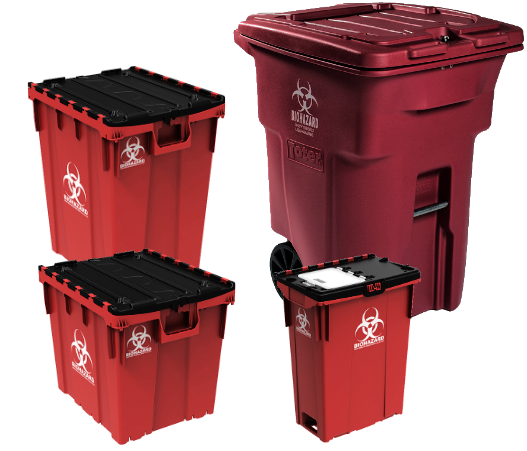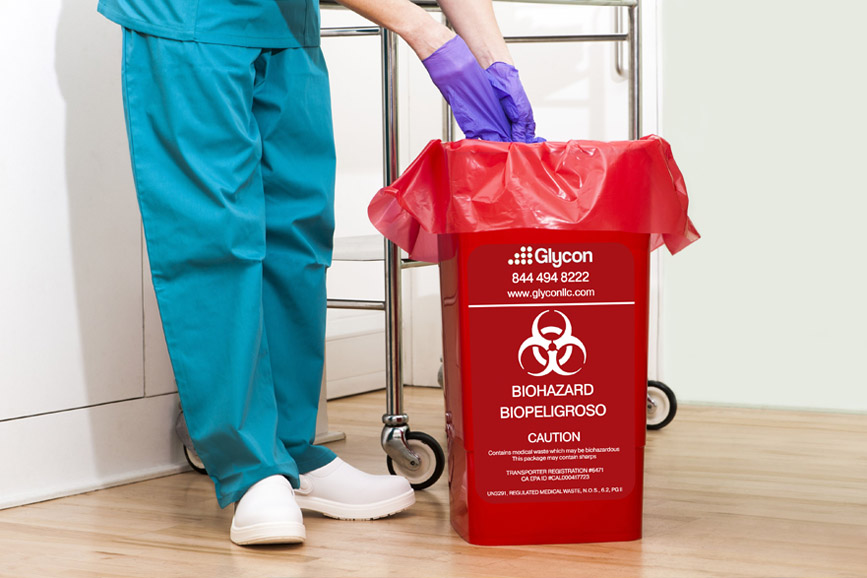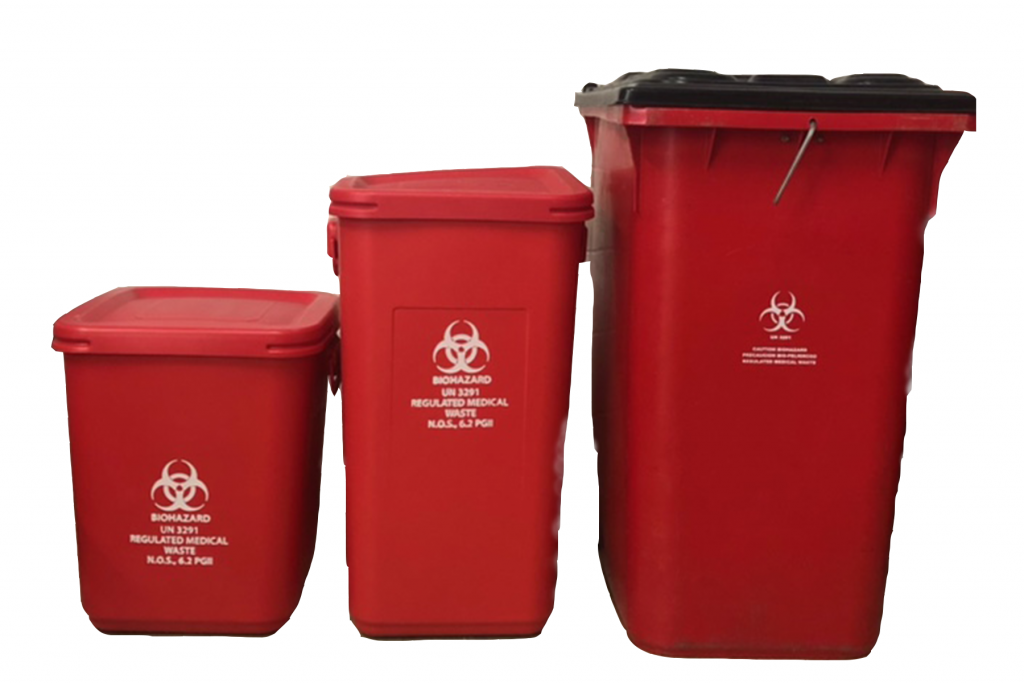Medical Waste Removal Quality: Elevating Safety Requirements in Your Center
Medical Waste Removal Quality: Elevating Safety Requirements in Your Center
Blog Article
Keep Ahead of Laws: Professional Recommendations on Medical Waste Disposal
In a globe where the healthcare sector is continuously progressing, it is imperative for medical facilities to remain ahead of laws when it pertains to the appropriate disposal of medical waste. With rigid guidelines and constant governing modifications, it can be testing to browse the complexities of this process. Nevertheless, with expert suggestions, facilities can make certain compliance and minimize dangers connected with inappropriate waste disposal. From understanding the various groups of clinical waste to carrying out the appropriate collection and partition approaches, this conversation will offer actionable suggestions and important understandings to help facilities remain ahead of policies in the ever-changing landscape of clinical garbage disposal.
Recognizing Medical Waste Categories
Recognizing medical waste classifications is essential for proper disposal and management in healthcare facilities. Medical waste describes any waste produced by medical care tasks that may pose a risk to public wellness or the atmosphere. It is vital to classify clinical waste properly to guarantee its safe handling, therapy, transport, and disposal.
There are a number of categories of clinical waste that healthcare facilities require to be familiar with. The most usual categories consist of transmittable waste, pathological waste, sharps waste, pharmaceutical waste, and chemical waste. Each classification has details guidelines and guidelines for its correct administration and disposal.
Infectious waste consists of materials polluted with blood or various other bodily liquids, such as gloves, gowns, and lab societies. Pathological waste describes human tissues, organs, or body components that need special handling and disposal. Sharps waste consists of made use of needles, syringes, and other sharp items that can create injury and transmit infections. Pharmaceutical waste makes up expired, unused, or polluted medications that require cautious handling and disposal. Chemical waste includes solvents, disinfectants, and other chemical compounds utilized in health care centers.
Remaining Up-To-Date With Regulatory Changes
Remaining present with regulative adjustments is crucial for healthcare centers to ensure compliance and appropriate management of clinical garbage disposal. medical waste removal near me. With laws frequently progressing, it is vital for health care facilities to remain current to stay clear of charges, fines, and potential harm to the atmosphere and public health and wellness
To remain in advance of regulatory modifications, healthcare facilities need to develop a system for monitoring and monitoring updates. This can be done by signing up for regulative newsletters, participating in workshops and seminars, and proactively taking part in sector organizations. Additionally, facilities ought to mark an employee or team liable for staying informed and disseminating info to appropriate stakeholders.
Regular communication with regulative companies is additionally vital. Health care centers ought to establish relationships with local, state, and federal companies to ensure they know any kind of modifications in policies that may affect their waste management practices. This can be done through normal meetings, involvement in public comment durations, and proactive engagement with regulatory companies.
Furthermore, medical care centers ought to think about partnering with waste management firms that focus on medical garbage disposal (medical waste disposal services with WasteX). These companies are frequently fluent in the latest guidelines and can provide guidance and assistance to make certain compliance
Implementing Proper Collection and Partition Approaches
To efficiently manage clinical waste disposal, medical care centers need to develop appropriate collection and partition approaches based on governing standards. Executing these methods makes sure the safe handling and disposal of potentially unsafe products, safeguards the setting, and lessens read the full info here the threat of injuries and infections to healthcare workers and the public.
Appropriate collection and segregation methods include making use of marked containers and identifying systems. Health care centers need to supply clearly classified containers for various sorts of clinical waste, such as sharps, infectious waste, pharmaceutical waste, and non-hazardous waste. These containers must be color-coded and clearly significant to prevent complication and advertise simple recognition.
Additionally, healthcare facilities should educate their staff on the correct treatments for accumulating and setting apart clinical waste. This includes enlightening them on the different kinds of waste, the ideal containers to use, and the importance of complying with laws and standards. Regular training sessions and refresher courses need to be performed to make certain that personnel remain updated on best techniques.
Moreover, health care facilities ought to establish a system for regular collection and disposal of medical waste. This may include partnering with certified waste monitoring firms that concentrate on medical waste disposal. These firms will certainly make sure that the collected waste is delivered and taken index care of in conformity with regulatory demands.
Choosing the Right Disposal Techniques

Incineration is just one of one of the most common and reliable approaches for disposing of particular sorts of clinical waste, such as pathological waste and sharps. It entails the controlled burning of waste at high temperatures, minimizing it to ash. However, incineration can release harmful toxins right into the air and add to air pollution.

Chemical therapy includes the usage of chemicals to counteract the waste and decontaminate. Microwave therapy utilizes microwave energy to heat and sanitize the waste.
Making Certain Conformity Via Documents and Training
After carefully considering the proper disposal techniques for medical waste, healthcare facilities should make certain compliance with policies and reduce environmental influence by applying effective documentation and training treatments. This step is important in preserving a lasting and risk-free environment for both healthcare employees and the general public.

Healthcare workers who take care of medical waste should get appropriate training on waste partition, taking care of, and disposal procedures. By offering detailed training, health care facilities can equip their staff to make enlightened decisions and lessen the threat of incorrect waste disposal.
Final Thought
In verdict, remaining in advance of guidelines in medical garbage disposal is vital for health care facilities. medical waste removal service. Recognizing the different groups of clinical waste, staying upgraded with regulatory changes, carrying out appropriate collection and segregation methods, picking the suitable disposal techniques, and making sure compliance with paperwork and training are all necessary steps. By adhering to these standards, healthcare companies can successfully get rid of and take care of of clinical waste in a risk-free and liable fashion
From comprehending the various groups of clinical waste to carrying out the best collection and partition methods, this discussion will certainly provide useful understandings and workable ideas to assist centers stay ahead of laws in the ever-changing landscape of medical waste disposal. - medical waste disposal services with WasteX
The most usual categories consist of contagious waste, pathological waste, sharps waste, pharmaceutical waste, and chemical waste. Health care facilities need to offer clearly labeled containers for different types of clinical waste, such as sharps, contagious waste, pharmaceutical waste, and non-hazardous waste. Health care centers must develop a thorough system to videotape and track Web Site all aspects of medical waste disposal, including kinds of waste produced, amounts, and disposal approaches made use of. Health care employees that manage clinical waste must get appropriate training on waste segregation, taking care of, and disposal procedures.
Report this page